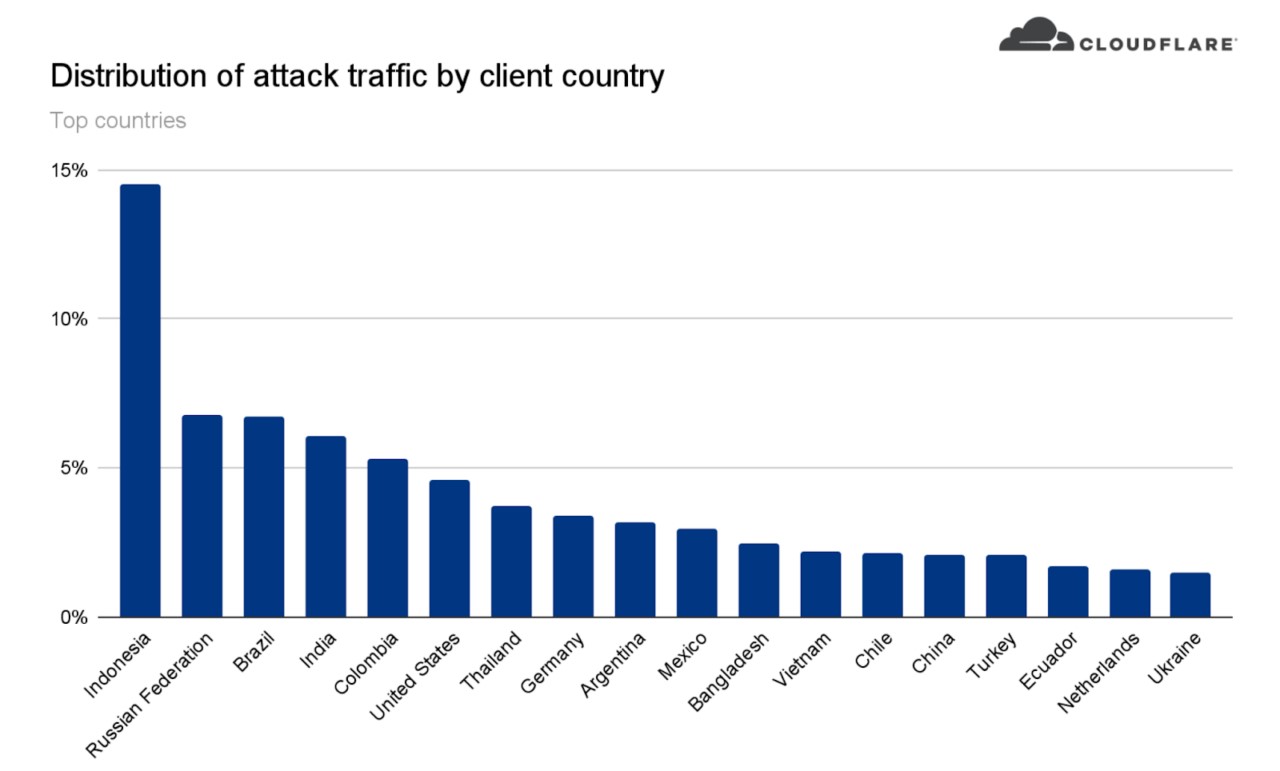News
Cloudflare Reports Record DDoS Attack of 15.3 million Requests Per Second
An unnamed cryptocurrency platform was recently suffered one of the largest in history, and possibly a record-breaking DDoS attack, power of which reached 15.3 million requests per second (request-per-second, RPS).
Let me remind you that we previously talked about the fact that Microsoft has recorded a record DDoS attack, with a capacity of 3.47 Tb/s, and also, for example, about such a curious case when DDoS attacks on Andorra turned out to be related to the Squid Game Minecraft tournament.
HTTPS DDoS attacks are more expensive in terms of computational resources required due to the higher cost of establishing a secure TLS encrypted connection. Therefore, it is more expensive for an attacker to launch such an attack, and for a victim to mitigate it.Cloudflare experts say.
Cloudflare’s report also states that the attack lasted less than 15 seconds and was launched by a botnet of approximately 6,000 unique bots from 112 countries. According to Cloudflare, almost 15% of the traffic came from Indonesia, and devices from Russia, Brazil, India, Colombia, and the United States also participated in the attack.

Interestingly, the attack mainly came from data centers. We are seeing a massive shift from home networking internet service providers to cloud computing service providers. In these countries, the attack originated from more than 1,300 different networks, including the German provider Hetzner Online GmbH (ANS 24940), Azteca Comunicaciones Colombia (ASN 262186), OVH in France (ASN 16276) and so on.experts say.
Such attacks are commonly referred as “volumetric” attacks and differ from classic DDoS attacks as in this case, the attackers focus on sending as many unwanted HTTP requests as possible to the victim’s server in order to load its CPU and RAM, interfering with users use target sites.
The researchers note that while this was not the largest application layer attack they have seen, it is the largest HTTPS attack they have observed.
User Review
( votes)
Comments Rating
0
(0 reviews)





